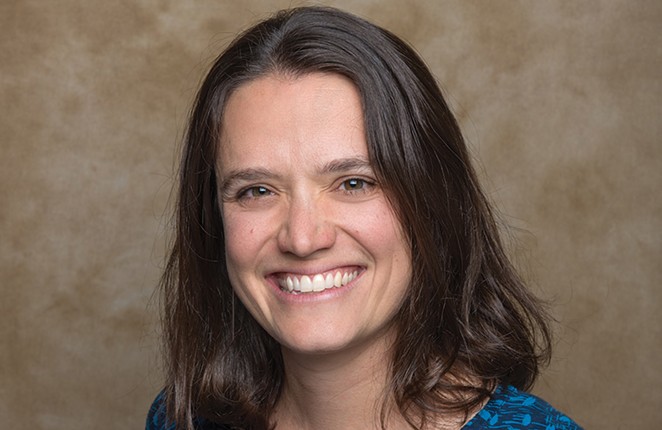Q: My teenage son sounds very hoarse when speaking. This is something that has progressed over the past year or so. At first, I thought it was temporary, but it might not be. What should I do?
A: While working with a speech language pathologist may very well be an important element of care for him, the first step I recommend is to discuss your child's hoarse voice with their pediatrician. There can be many causes for a hoarse voice, so it's best to find out the cause before treating it. The pediatrician will generally recommend you take your child to a laryngologist. A laryngologist is a subspecialty of an Ear Nose and Throat physician and is someone who specializes in the evaluation of the larynx (this is the location of the vocal cords). The ENT may recommend voice therapy with a speech-language pathologist and/or some medical interventions to treat what is causing the hoarseness. In the meantime, he can start with some basic vocal hygiene, such as drinking plenty of water, using a humidifier, avoiding caffeine, alcohol, smoking and vaping, managing reflux and mucous, avoiding prolonged vocal use, avoiding coughing/throat clearing and resting his voice if it becomes difficult or painful to talk. A speech-language pathologist can go over these recommendations in more detail.
Q: When should a parent seek help from a speech pathologist? My friend said she is taking her eight-year-old daughter to some sessions just to make sure she is enunciating properly. My children seem to speak clearly, but how would I know, since they are kids?
A: Most parents bring their children in for a speech therapy evaluation of speech sounds because they have concerns about their child's communication or they have heard from the child's pediatrician or classroom teacher that there may be a need for an evaluation. If a child is confidently communicating at home and with peers and experiencing ease in their communication, it may not be necessary to complete an evaluation. Some resources you can use to help determine if pursuing an evaluation makes sense are found at the link below. By age eight, we expect a child to be easily understood by almost everyone listening.
asha.org/public/speech/development/communicationdevelopment/
Q: Sometimes, my 4-year-old daughter stutters and has a hard time expressing herself. She will get so tripped up that she gives up and becomes quiet. What can I do to encourage her?
A: Finding a speech language pathologist with experience working with children who stutter and one that really connects with you and your child is the place to start. If you must choose between the two (expertise in stuttering vs. a connection), choose the one that connects with your child the best. That connection is critical for this support.
In terms of how to support your daughter, ensure that she knows that you care about hearing what she has to say more than how she says it. You can convey this by showing patience (don't try to fill in a word/sentence for her) and by allowing one-on-one time to talk together when there isn't any added pressure of trying to speak when someone else (i.e. a sibling) might interrupt. If you already see that frustration and you can tell your daughter is aware of her stuttering, then you can have a non-judgmental conversation about it. If it feels like a tricky conversation to have, your speech therapist can help. The main message you want her to receive is something like, "I can tell that didn't come out the way you planned on and I'm SO GLAD you told me anyway!" Your therapist will also work with your child and any other people in her life to promote confidence in her communication. The website below has a wealth of information on stuttering.




















